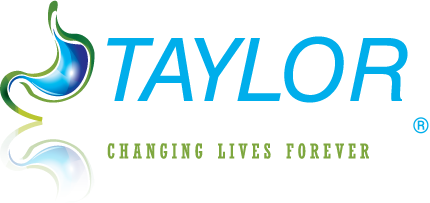The Role of Nutrition in Recovering from Gastric Bypass Surgery
Embarking on a journey toward significant weight loss through gastric bypass surgery is both a courageous and committed decision. This blog explores the pivotal role of nutrition in not only ensuring a successful recovery but also in laying the groundwork for a sustainable, healthy lifestyle post-surgery.
Understanding Gastric Bypass Surgery and Its Nutritional Implications
Gastric bypass surgery marks a substantial shift in an individual’s life, profoundly altering their digestive system to facilitate substantial weight loss. Understanding the anatomical changes is crucial for appreciating the surgery’s nutritional repercussions. Post-surgery, the stomach’s size is significantly reduced, and parts of the digestive system are bypassed. This modification necessitates a comprehensive overhaul of dietary habits to compensate for the body’s limited capacity to absorb nutrients, setting the stage for the surgical journey’s nutritional aspect.
The immediate postoperative phase introduces the body to a new way of processing food, a reality that demands a meticulously planned diet to foster healing and adapt to the new normal. Initial diets predominantly consist of liquids and gradually evolve to include pureed and soft foods. This staged dietary approach ensures that the newly configured digestive system is not overwhelmed, aiding in a smoother recovery and laying a foundational understanding of the importance of nutritional care in this transformative period.
Foundational Dietary Guidelines Post-Surgery
The cornerstone of a successful recovery and the journey towards a sustainable lifestyle post-gastric bypass involves adhering to a set of dietary guidelines curated to meet the unique nutritional needs of the individual. Emphasis is placed on protein intake, critical for wound healing and preserving muscle mass in the context of rapid weight loss. To prevent nutrient deficiencies, meals are designed to be nutrient-dense yet portion-controlled, a balance that requires careful planning and unwavering commitment.
As individuals navigate this new way of eating, it becomes apparent that the relationship with food must evolve. Gone are the days of eating by mere impulse or desire. In its stead, a mindful, measured approach to eating takes root, prioritizing quality over quantity. This transition is underpinned by the necessity to consume small, frequent meals to accommodate the reduced stomach capacity and promote optimum nutrient absorption.
The Importance of Hydration and Vitamin Supplementation
Hydration emerges as a central pillar in post-gastric bypass care, with the diminished stomach size imposing strict limitations on fluid intake during meals. Patients are advised to drink fluids between meals to maintain hydration without compromising the stomach’s capacity for nutrient-rich foods. Furthermore, the altered digestive anatomy significantly impacts the body’s ability to naturally absorb essential vitamins and minerals, necessitating lifelong supplements to prevent deficiencies and ensure overall health.
The selection of vitamin and mineral supplements is not a one-size-fits-all regimen but tailored to the individual’s specific nutritional gaps. Common recommendations include vitamin B12, iron, calcium, and vitamin D, each playing a crucial role in supporting bodily functions that facilitate recovery and long-term well-being. Regular follow-ups with healthcare providers ensure that the supplementation plan remains aligned with the evolving nutritional needs.
Developing a Mindful Eating Strategy
Mindful eating becomes not just a strategy but a necessity for individuals recovering from gastric bypass surgery. It involves being fully present during meals, chewing food slowly, and savoring each bite to facilitate digestion and recognize the body’s satiety cues. This practice prevents overeating, reduces the risk of gastrointestinal discomfort, and enhances the overall eating experience by encouraging a deeper appreciation for nourishing foods.
Navigating Challenges: From Nutritional Deficits to Emotional Eating
The road to recovery and adaptation to a new lifestyle post-gastric bypass is not devoid of challenges. Nutritional deficits pose a significant concern, necessitating vigilant monitoring and management to mitigate their impact. Moreover, the emotional dimension of eating—often used as a coping mechanism for stress or emotional distress—requires addressing. Patients are encouraged to seek alternative strategies to cope with emotions, emphasizing the importance of support groups, counseling, and engaging in fulfilling activities beyond the realm of food.
Long-term Nutritional Care and Lifestyle Changes
Embarking on a lifestyle that fosters long-term success after gastric bypass surgery extends beyond the initial recovery period. It encompasses a commitment to ongoing nutritional care, regular physical activity, and mindfulness regarding one’s relationship with food. The journey is marked by continuous learning and adaptation, with the goal of maintaining the weight loss achieved and, more importantly, promoting a state of health where the individual feels empowered and revitalized. The journey of gastric bypass is transformative, challenging individuals to embrace change, seek support, and celebrate every milestone on the path to wellness.
Nourishing a New Beginning
Understanding the intricacies of gastric bypass nutrition is crucial in navigating the post-operative period and beyond. By adhering to the dietary guidelines, embracing a new relationship with food, and acknowledging the challenges and successes along the way, individuals can achieve not just a recovery, but a transformation. Nutrition, after all, is not just about healing; it’s about thriving in a new chapter of wellness.

